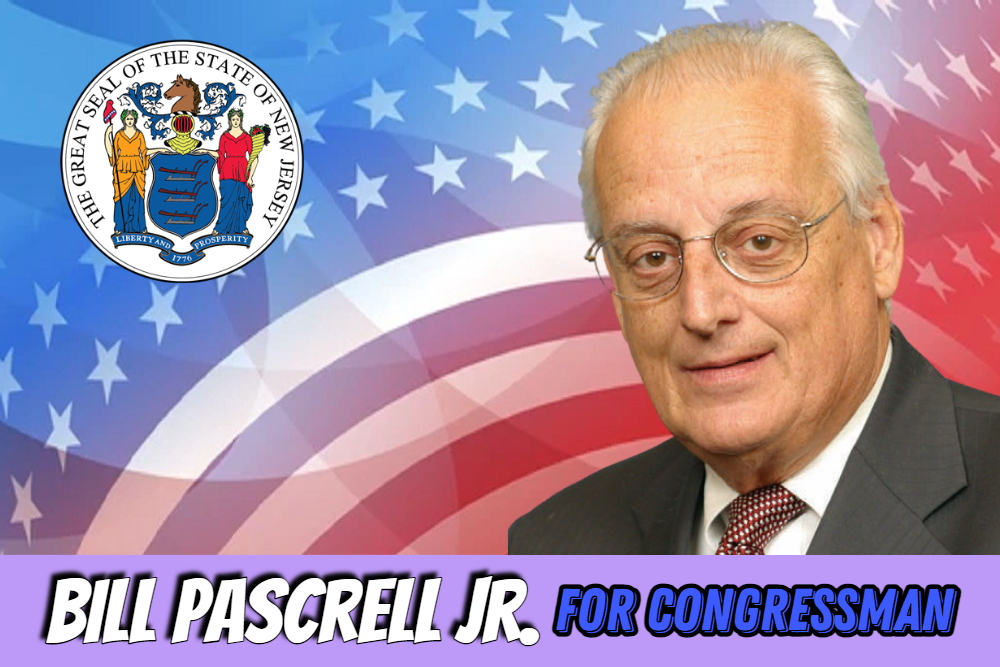U.S. Reps. Bill Pascrell, Jr. (D-NJ-09), Troy Carter (D-LA-02), and Frank Pallone (D-NJ-06) sent a letter to Federal Emergency Management Agency (FEMA) Administrator Deanne Criswell calling for FEMA to delay the rollout of the National Flood Insurance Program’s Risk Rating 2.0 calculation system. Their letter focuses on their deep concerns of how Risk Rating 2.0 will ratchet up premium costs for homeowners in their districts.
“From Hurricanes Katrina and Ida to Superstorm Sandy, our constituents have a firsthand experience of the negative impacts of climate change and understand well the importance of flood prevention, preparedness, recovery and mitigation,” the Members wrote. “Without comprehensive affordable coverage, homeowners in our communities risk losing everything and so families place deep reliance on the National Flood Insurance Program (NFIP).”
The Members continued, “But under the Federal Emergency Management Agency’s (FEMA) new Risk Rating 2.0 system, we fear many of our constituents, especially in low and moderate income communities, will be priced out of their homes by drastic premium increases and others will choose to forgo coverage entirely. Consequently, we ask you to continue previous precedent and delay implementation of premium increases for existing policy holders under Risk Rating 2.0.”
The Members’ full letter to Administrator Criswell is below.
March 31, 2022
Deanna Criswell
Administrator
Federal Emergency Management Agency
500 C Street, S.W.
Washington, D.C. 20472
Dear Administrator Criswell,
We write to you as elected representatives of districts that have experienced major flooding in recent years. From Hurricanes Katrina and Ida to Superstorm Sandy, our constituents have a firsthand experience of the negative impacts of climate change and understand well the importance of flood prevention, preparedness, recovery and mitigation. Without comprehensive affordable coverage, homeowners in our communities risk losing everything and so families place deep reliance on the National Flood Insurance Program (NFIP). But under the Federal Emergency Management Agency’s (FEMA) new Risk Rating 2.0 system, we fear many of our constituents, especially in low and moderate income communities, will be priced out of their homes by drastic premium increases and others will choose to forgo coverage entirely. Consequently, we ask you to continue previous precedent and delay implementation of premium increases for existing policy holders under Risk Rating 2.0.
It is clear that America needs comprehensive flood insurance reform. But any major program changes must be affordable for policy holders regardless of geographic location. Risk Rating 2.0 is estimated to increase rates for 77% of policy holders. These price hikes will place the program well outside the price range for our constituents still struggling to recover from the COVID-19 pandemic and its enduring economic fallout. In Louisiana, policy holders will see increases that total more than 129%, and approximately one-in-ten homeowners in the state will see premiums more than quadruple. In New Jersey, 79% of policy holders – nearly four out of every five – will see their premiums increase.
If Risk Rating 2.0 goes into effect on April 1, 2022, countless families in our communities struggling to make ends meet will have to decide whether retain their policies in their face of massive premium spikes. No family should be forced to choose between filling up their gas tank, putting food on their table, or meeting their mortgage payment because of a NFIP premium hike out of their control. We worry that many of our neighbors will simply decide to opt out of the program, which would only further financially burden the program.
While some officials may believe ample time has been given to existing homeowners to adjust to these proposed changes, our offices have heard from numerous policy holders who have expressed confusion and complaints about contradictory reports surrounding Risk Rating 2.0 and its expected impacts. For instance, even with these price hikes looming, policy holders and homebuilders still do not have adequate information about how specific mitigation measures could be implemented to reduce premium costs.
This issue is of momentous importance. With the worsening climate crisis, we know that devastating storms will continue occurring with increasing frequency. Without an affordable NFIP, our communities will be left with insufficient ways to protect themselves and recover. We support comprehensive and long-term reforms to the NFIP, but any changes must keep premiums down to rates that are actually affordable our communities. While we work on a legislative fix like cutting the current rate cap in half to ensure communities like ours are not left behind, a delay on the implementation of Risk Rating 2.0 is essential and we call on you to halt planned implementation.
We want to thank you for your and the President’s involvement on the ground in the aftermath of Hurricane Ida. We look forward to working together to ensure Risk Rating 2.0 will not price people out of essential flood insurance coverage.
Sincerely,
Original source can be found here.


